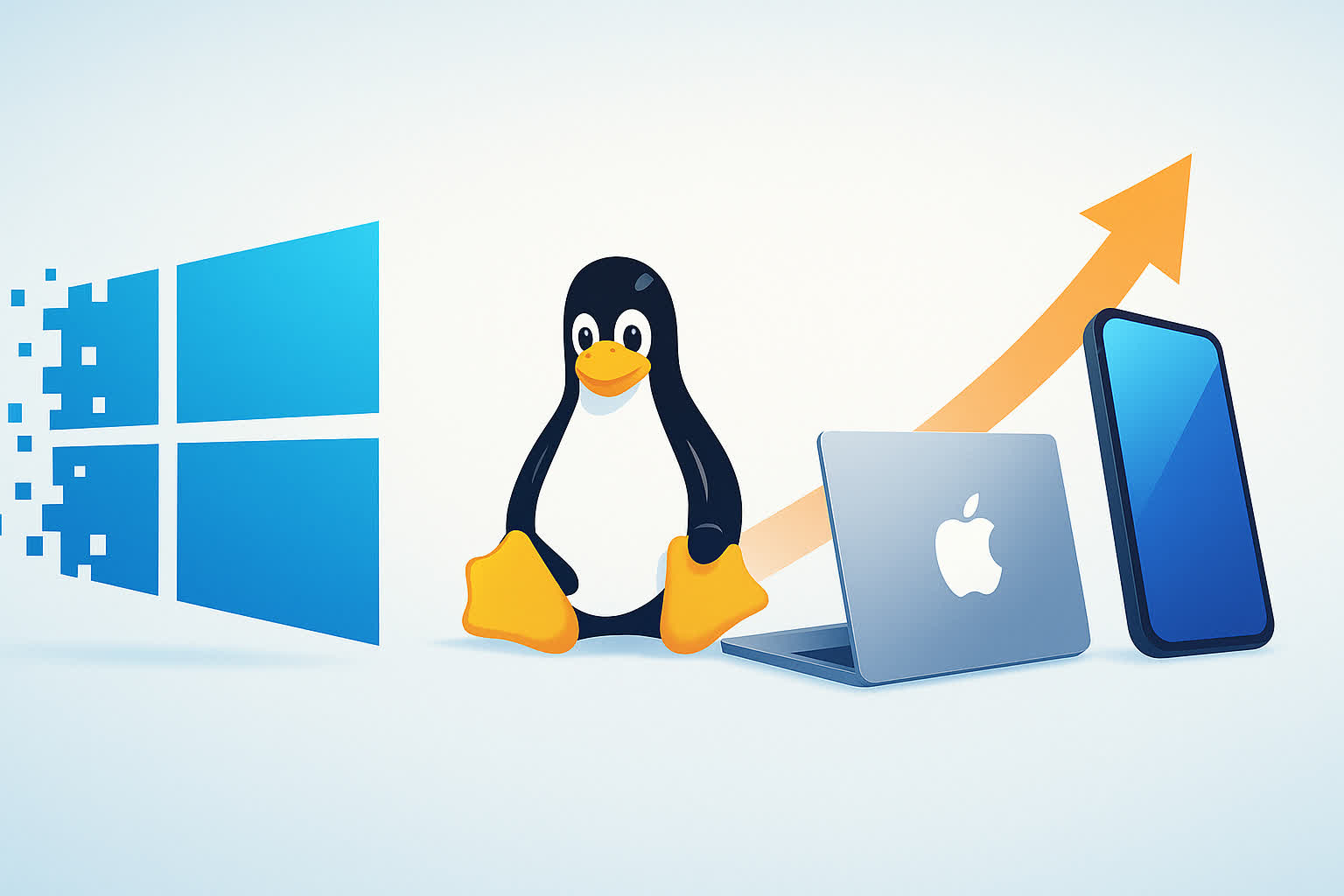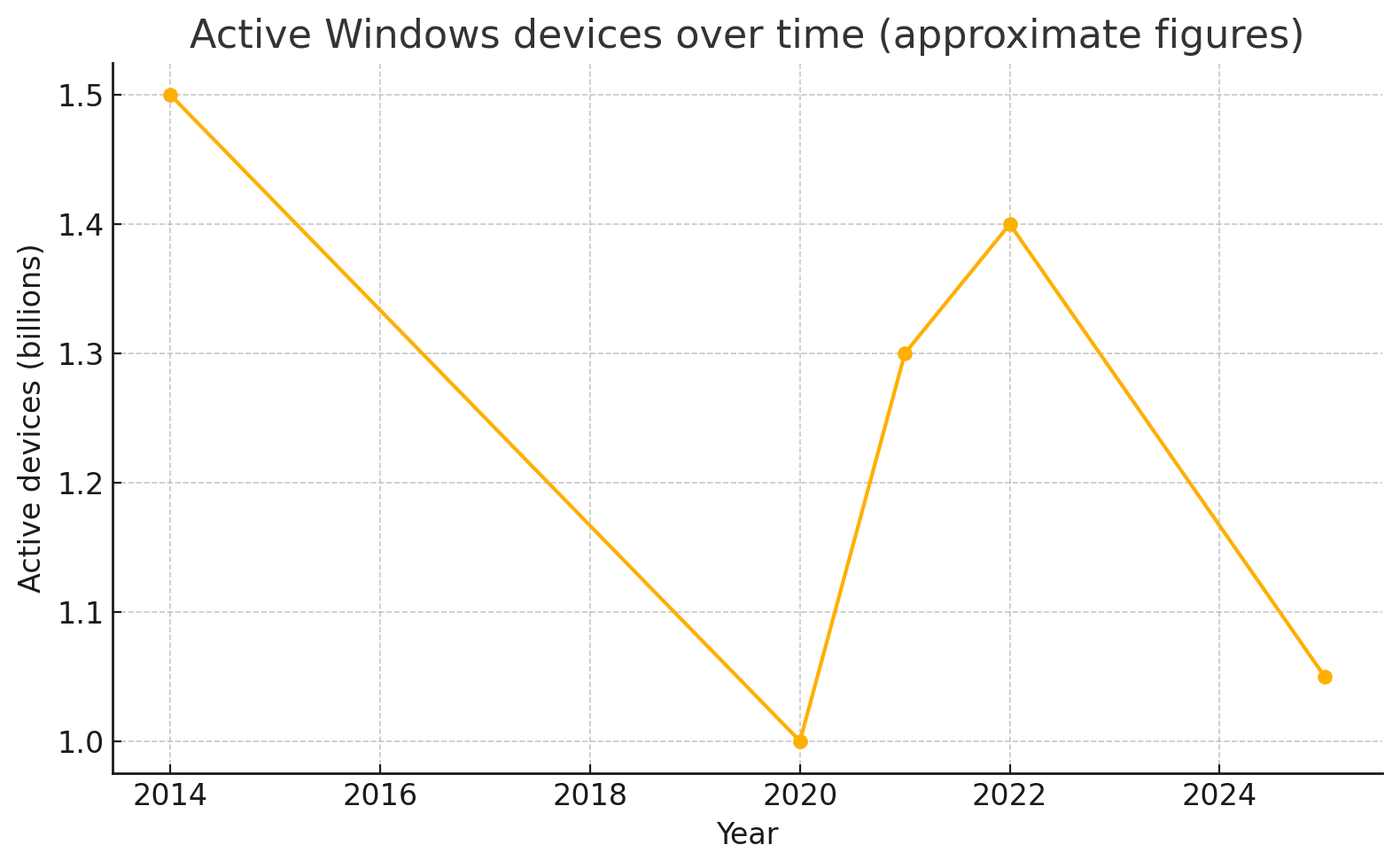In brief: Just over one billion active devices use Windows for their operating system, according to Microsoft. That sounds like an impressive statistic, but the company isn't as quick to point out that three years ago, the figure stood at 1.4 billion, meaning 400 million devices are no longer running the OS.
Correction (July 1): Microsoft recently revised a statement about the growth of Windows' total user base, prompting discussion about the future of the PC market. In 2022, the company reported that combined Windows 10 and 11 installations had grown from 1.3 to 1.4 billion since the previous year. However, a blog post published earlier this month stated only "over a billion," leading to speculation that Windows had lost around 400 million users.
The blog now reads "over 1.4 billion," suggesting that Windows has grown less over the past three years than it did between 2021 and 2022. Those earlier years saw a surge in PC sales due to the pandemic, but the market has since stabilized.
In a post focused on Windows 10's upcoming end-of-support date (October 14), Microsoft EVP Yusuf Mehdi boasts that Windows is the most widely used operating system in the world today, with over one billion monthly active devices globally.
However, it's been noted that in its 2022 annual report, Microsoft said 1.4 billion devices were running Windows 10 or Windows 11, up from 1.3 billion devices a year earlier.
There are explanations for where those 400 million devices went. Many users will have jumped to the other side and started using macOS, which saw a new lease on life following Apple's decision to transition away from Intel processors and start making its own chips for MacBooks. According to IDC and Canalys, Mac shipments were up YoY in April, giving Apple a global PC share of between 8.7% to 10.4%.

Another factor is the number of users and companies that are dropping Windows and moving to Linux-based alternatives. Some governments are also switching allegiances, including the German state of Schleswig-Holstein, the Danish Ministry of Digital Affairs, and the French city of Lyon.
But most of the people who left Windows likely did so in favor of smartphones and tablets. As mobile devices become more powerful year after year, the consumer Windows PC market has increasingly shifted toward professionals who need specialized software and hardware at home, as well as gamers.
Like virtually all electronic goods, PCs and Macs saw a surge in popularity during the pandemic and the years that followed – but those days are over. Microsoft is likely anticipating another bump in sales as October approaches and businesses upgrade their systems to shift to Windows 11. However, consumer holdouts may be slower to adopt the new OS, especially if doing so requires hardware upgrades. With game streaming, web-based apps, and faster internet connections, more people may decide they don't need a PC at all.
Elsewhere in the same report, Mehdi writes that Windows 11 is 2.3x faster than Windows 10. He failed to mention that Microsoft came to this conclusion by testing the older OS on laptops with Intel Core 6th-, 8th- and 10th-generation processors, while Windows 11 tests were carried out on PCs with Intel Core 12th- and 13th-generation CPUs.
Image credit: Andrej Lišakov

